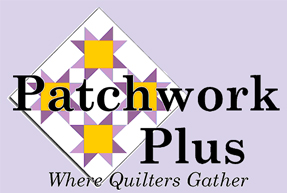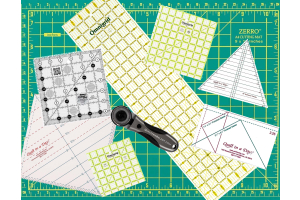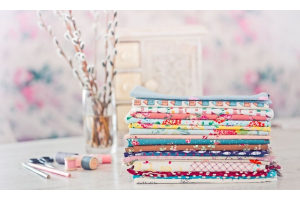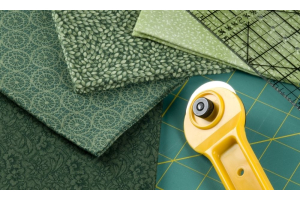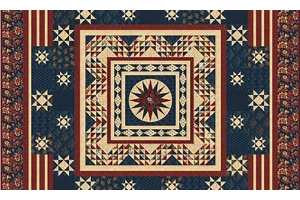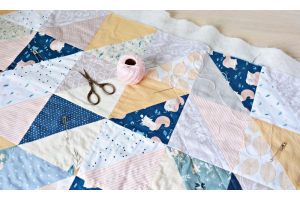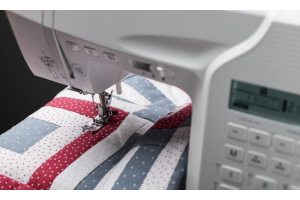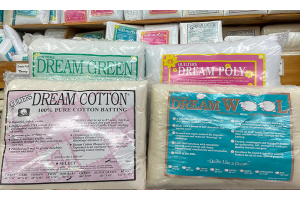What Type of Thread Should You Use for Quilting?
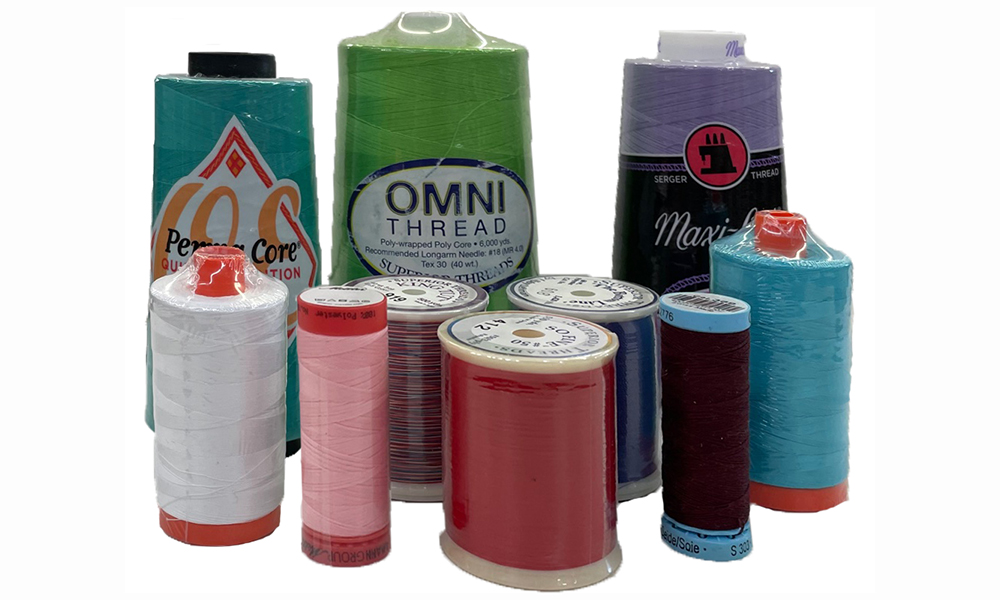
Are you new to the world of quilting? Then you may be a tad confused about the supplies you need to get started. You’ll find a lot of different opinions online, but there’s no one correct answer. As you progress, you might select a thread based on what stage of the process you’re at or what effect you want. When you’re beginning, though, a few recommendations should help you understand what type of thread you should use for quilting.
Piecing
Machine Piecing
When piecing, cotton is the way to go. Use a quality brand like Aurifil and choose 50-weight. Piecing seams involves joining two pieces of fabric, and the tension can cause a polyester thread to cut through the cotton fibers of the fabric over time. When piecing, use the same thread in your bobbin as you use in your needle.
Hand Piecing
If you prefer the old-fashioned satisfaction of sewing by hand, you should look for a coated thread made just for hand sewing. It can prevent snarling, knotting, and breaking. But beware—you should not use this thread in your sewing machine. It can really gum up the works and will almost guarantee a trip to the sewing machine repair shop.
Quilting
Machine Quilting
Whether you’re quilting on a longarm or domestic machine, you can use a variety of thread types. You can use a 50-weight cotton thread for just about any machine quilting. 50-weight is thin enough to move through the needle at higher speeds but thick enough to show up on the quilt’s surface. Polyester thread is fine, too. It often has a higher sheen and really shows off your stitching. When you’re starting out with machine quilting, you might want to match your thread to your background fabric or use a neutral or variegated thread that will blend in and be more forgiving.
Hand Quilting
If you prefer sewing by hand, look for a coated thread made for that. It can help prevent snarling, knotting, and breaking. But beware—you should not use this in your machine. It can gum up the works and will almost guarantee a trip to the repair shop. If you can’t find the color of hand quilting thread you want, you can also use beeswax to coat your thread. Just pull your thread through the beeswax a few times, and you’ll be surprised at how nicely it sews!
One More Tip
Fiber and weight aren’t the only things that will determine the type of thread you should use for quilting. In general, use the best quality thread you can afford. Better quality threads can help you avoid excessive lint, thread breakage, and color bleeding onto your quilt.
A specialty quilt fabric shop that knows its stuff can advise you on your project, but these threads will get you started stitching. At Patchwork Plus, we recommend the Bottom Line and Aurifil brands for durability—and you’ll be impressed by their line of colors. Shop our thread selection, and contact us with questions.
